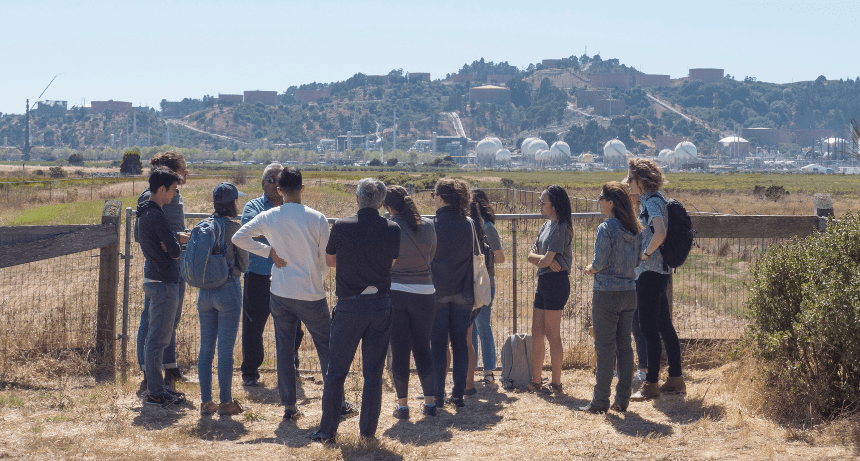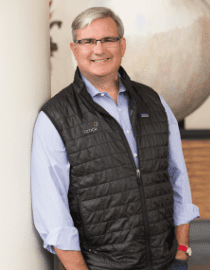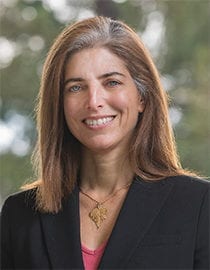
By Sarah Weld
Passionate about sustainability, Orrick Chairman Mitch Zuklie ’96 envisioned practicing environmental law after he graduated from Berkeley Law. Recently, his family and Orrick together pledged $250,000 to Berkeley Law’s Environmental Law Clinic over five years — which also unlocked an anonymous $1 million gift made on a 4-to-1 matching basis.

A corporate advisor with a special focus helping energy tech companies and other innovators thrive, Zuklie sees a “deafening” call to action.
“We’re in the midst of multiple global crises: a pandemic, an economic crisis, a racial equity and justice crisis, and a climate crisis,” he says, noting the intersectionality of these daunting dilemmas. “When it comes to addressing the climate crisis, it would be hard to identify a better partner than the Berkeley Environmental Law Clinic.”
The gift will allow the five-year-old clinic to continue its public interest work on behalf of clients with environmental health and justice matters, says Director Claudia Polsky ’96. Specifically, it will help fund the clinic’s attorney teaching staff, crucial to providing students with the hands-on experience supervised by experts that drives Berkeley Law’s Clinical Program.
Zuklie views clinics as a needed model to better prepare students for working and innovating in teams during their future careers.
“One of the biggest disconnects for me is the individual achievement model of law school versus the critical role of teamwork in legal practice. Inclusive collaboration is essential, whether your career path takes you to public service, in-house, or a law firm setting,” he says. “Law clinics are one of the great ways to bridge that gap and make the transition from that individually oriented legal education setting to the expert collaboration and teamwork it takes to make a difference for our clients and in our communities.”
The Environmental Law Clinic trains 30 to 40 students a year in administrative agency practice, litigation, legislation, and policymaking, serving nonprofits, victims of environmental exposures, activists, and public agencies undertaking environmental protection projects. Their work focuses on environmental justice issues that seriously affect people of color and the poor, and environmental health issues such as exposure to pollution, toxic substances, and radiation.
“This gift will give us the supervisory and student power to take on matters that challenge the ongoing extraction, transportation, and combust of fossil fuels, and speed the transition to clean renewable energy,” Polsky says. “It will also help us address pollution and the vast array of under-regulated toxic chemicals — many of them petroleum-based — that account for so much needless environmental illness, from asthma to cancer.”
Making an impact
Recently, clinic students worked on litigation and advocacy before California’s Public Utilities Commission to speed the transition to a clean, just energy system in the state.
“[The gift] advances our objectives to expand our efforts on sustainability in all senses. It’s a fit with our renewables, energy tech, and energy litigation practices, which are market leaders, and it creates connections with the next generation of Berkeley Law students,” says Zuklie.

In the environmental health realm, the clinic recently scored a litigation victory against the Environmental Protection Agency over its plan for responding to offshore oil spills, which relies heavily on toxic chemicals to disperse spilled oil.
A judge preliminarily ruled that the agency’s failure to update its 25-year-old spill response plan to reflect current scientific knowledge violates the Clean Water Act. In that matter, the clinic represents several environmental justice clients whose concerns include the impact of oil and oil-dispersant chemicals on the traditional marine food sources of Native Alaskans.
Zuklie says his own views on conservation stem from longtime friend Guido Rahr, chief executive officer of the Wild Salmon Center in Portland, Ore.: “Guido is a proponent of stronghold theory — the idea that we will make the most progress by focusing our efforts first on preserving what’s already intact, rather than trying to only fix what’s in peril. Environmental law and policy has a huge role to play in applying that theory, and it’s a natural focus for the work of the clinic.”
“Among things that are intact and worthy of preservation is an intangible: the planet-saving enthusiasm of our environmental clinic students,” Polsky says. “The Orrick firm’s and Zuklie family’s generous support will help us train and deploy our students for maximum efficacy. We are so grateful for this vote of confidence in the clinic and in Berkeley Law, and aspire to making the donors proud.”